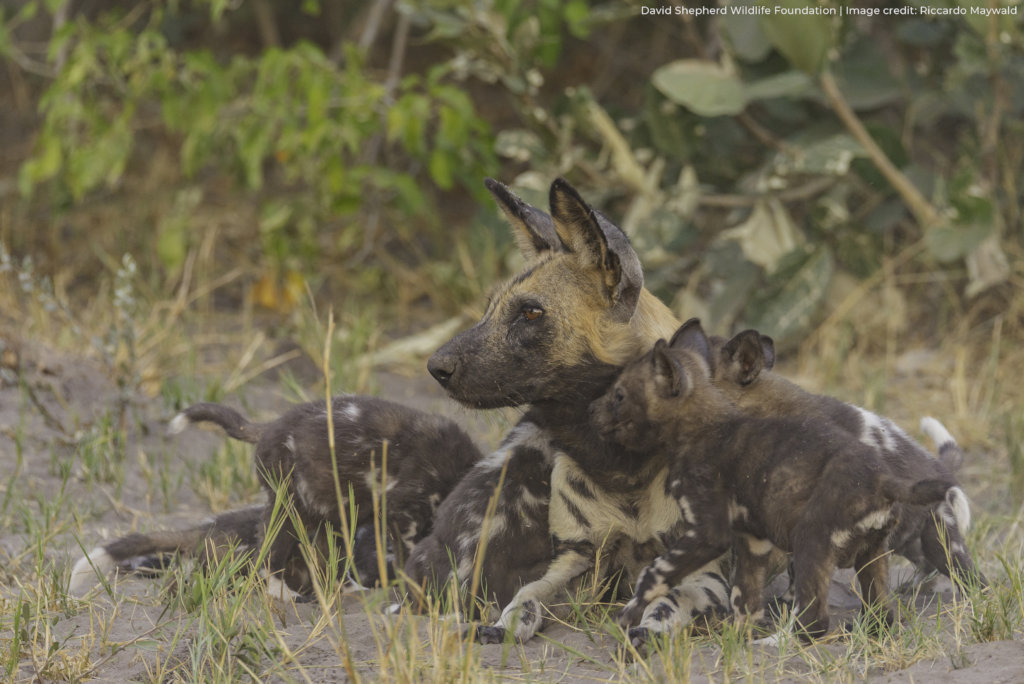By Jayne Horswill | Project Leader
Thank you for donating to our Protecting Painted Dogs project. Your support helps to fund The Painted Dog Conservation (PDC), the ground-based conservation partners that David Shepherd Wildlife Foundation (DSWF) supports and who work to protect painted dogs in Zimbabwe.
The African painted dog is one of Africa’s most endangered mammals, with poaching remaining the single biggest threat to their survival.
The major way in which PDC and DSWF counter this is through regular anti-poaching patrols, providing a blanket of cover in some of the key areas and territories around Hwange National Park.
The anti-poaching unit covers up to 20km per day, 6 days a week. It’s a hard and relentless job, but it keeps the dogs safe. It’s essential that the wildlife rangers dedicated to this work are well-equipped with quality field clothing and tools, such as GPS units and digital cameras to ensure they can do their job and report on any suspicious or illegal activity. It’s also a way for our ground-based conservation partners to enhance the strategic deployment of units into known poaching hotspots or snare trap locations.
Whilst the anti-poaching units are busy in the field, the team back at base are also busy working with local communities with whom they have successfully built relationships of trust, and who often call with regular dog sightings and help to prevent den disruptions.
Several times over the last year, PDC have been called into help with the safe relocation of a painted dog den to ensure human-wildlife conflicts are reduced and does not put wild packs at risk who have found themselves unknowingly living too close to human settlements. The adult dogs are safely darted and removed with the pups, then dug out in a safe and controlled environment by experts for relocation. Due to the trust granted to PDC by the local communities, this helps avoid unnecessary trauma or attack from those less tolerant to wildlife living in close proximity.
By investing in long term engagement and education projects, DSWF has witnessed first-hand how this work can help protect wildlife and people, allowing for a peaceful and productive co-existence.
By supporting our work with painted dogs, you are helping not only one of Africa’s most endangered mammals, but also the incredible local communities and children who provide the first line of defence in their protection.
Links:
Project reports on GlobalGiving are posted directly to globalgiving.org by Project Leaders as they are completed, generally every 3-4 months. To protect the integrity of these documents, GlobalGiving does not alter them; therefore you may find some language or formatting issues.
If you donate to this project or have donated to this project, you can recieve an email when this project posts a report. You can also subscribe for reports without donating.
Support this important cause by creating a personalized fundraising page.
Start a Fundraiser